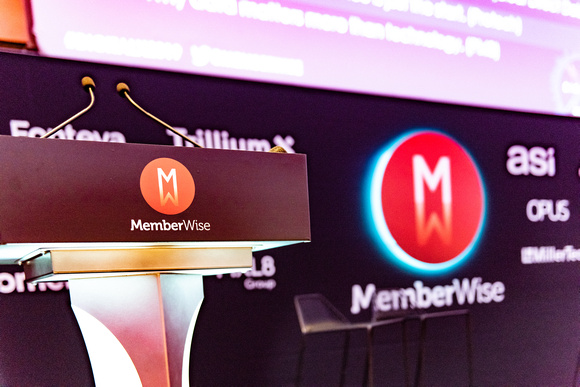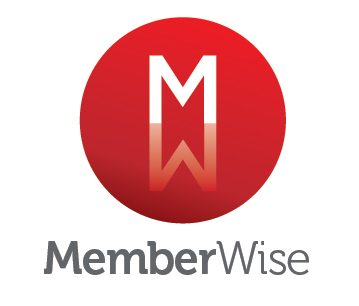The MemberWise Network estimates there are over 800 professional bodies in the UK and they represent over 25 million professionals who range from doctors to dentists; solicitors to HR professionals; and architects to accountants. Their size and scope vary depending on scale/reach and they form a key segment of the UK/EU Membership and Association Sector.
Definition of a Professional Body
A Professional Body is an organisation with members (mostly individuals) practicing a profession or occupation. These organisations usually have oversight on knowledge, skills, support, conduct and practice of the respective profession/occupation.
What Are the Largest Professional Bodies in the UK?
The Member Wise Network has compiled a list of “The Ten Largest Professional Bodies in the United Kingdom”. This list compliments “The Influence 100 (Largest UK Membership Organisations) List”.
What are the key functions of Professional Bodies?
Functions vary amongst organisations, however many provide:
- Comprehensive Help and Support – To provide practical help, support and career development
- Enhanced Professional Status – To advocate ‘gold standard’ within a profession
- A Strong Collective Voice – To provide an entity stronger than the sum of its individual parts
- Advocacy – To generate/influence stakeholders/government on key policy areas
These functions provide focus for a range of member benefits that deliver positive member focused outcomes. MemberWise Network Chair, Richard Gott, commented:
“Nearly all Professional bodies are stronger than the sum of their individual parts (individual members). This enables powerful, authentic and unrivalled help/support to enable respective professions (and professionals) to develop and grow. The challenge for these organisations now is to be proactive (rather than reactive), deliver in a timely manner (via the right online and offline channels) and remain relevant.”
Member Benefits fit into two core categories:
- Tangible – These are visible and should answer the ‘What’s in it for me?’ question (transactional)
- Intangible – Contribute towards deepening emotion, loyalty and a sense of belonging (harder to quantify)
What is the Average Professional Body Retention Rate?
At present UK professional bodies have member retention rates of 85%. This is slightly lower than trade associations (89%) but higher than consumer focused membership bodies (82%), charitable donation bodies (83%) and business associations (82%).
What is the Average Professional Body New Member Acquisition Rate?
Average new member acquisition rate for professional bodies is between 15% and 25%. The rate depends on a range of internal and external factors that include propensity to join, perceived member value, marketing proactivity and new member acquisition pipelines (e.g. links with universities/training institutions and/or popularity of student/trainee membership).
Source: MemberWise Membership Survey Results 2019/20
What are Typical Membership Grades of Professional Bodies
Most professional bodies have grade structures in place that are linked to role/career progression.
Although not all organisations have the same grade structure many have the following Grades:
- Affiliate – A non-voting grade for non-practicing or complimentary professions
- Student – A non-voting membership grade for university students or equivalent (undergraduate)
- Trainee – A non-voting membership grade for individuals in training/education (postgraduate)
- Associate – A non-voting membership grade for individuals in the early stages of practice
- Full Member – A voting membership grade for individuals who meet the criteria of full membership
- Fellow – A voting membership grade for individuals who have met specific criteria as senior professionals
- International Member – A non-voting membership grade for individuals based overseas
The above membership grades are likely to have categories to ensure inclusivity and appropriate pricing. e.g. a member working part-time or working overseas.
What Member Benefits Are Provided by Professional Bodies?
We’ve created a helpful list of typical member benefits (in conjunction with MemberWise Network Members) to enable professional bodies to check current offerings and/or provide inspiration to develop new and future offerings:
Volunteering / Committee / Working Group Participation
This has long been a great activity that utilises the knowledge and skill of members and enables professional bodies to amplify their activity and reach. Examples of this activity include running local groups, leading specialist committees and/or formulating or developing new policy/best practice guidance. This activity is usually undertaken by advocates of the organisation/profession.
Regional Activity
Many professional bodies conduct regional activity. Regions are sometimes known as Branches, Sections, Faculties or Chapters. Activity is normally structured with a formalised board or equivalent (e.g. with a Chair, Secretary and Treasurer). Some organisations also have regional groups for younger members. This activity can provide great member value and outwardly demonstrate that organisations’ are not HQ/London centric.
Special Interest Groups (SIGs)
SIGs provide a great opportunity for members with special interests to network with like minded colleagues and/or advance particular fields/areas of interest. This activity works well for many organisations and typically is managed in alignment with regional activity.
Website
All professional bodies have a dedicated website that contain a mixture of content (e.g. information about the organisation, online journal/magazine, online shop (selling publications/memorabilia), online joining/renewal and comprehensive virtual products/services). Websites enable professional bodies to extend their reach across the globe and can provide immediate online value to members. Access to key content and/or functionality is usually locked down via a dedicated ‘Members Area’ where self-service functionality is the norm. Some professional bodies host their journals and/or lobbying campaigns on separate micro-sites.
Awards
Awards have long been a great way for professional bodies to recognise member achievements or provide finance/resource for ground-breaking research/development conducted by members. Typically, awards from professional bodies carry gravitas and are recognised as valuable.
Post-Nominals / A member logo or badge
Post-Nominals (or letters after your name) have long been a status focused benefit of membership and traditionally members have added the letters to business cards, letter headed paper and/plaques (e.g. displayed outside of solicitor offices, doctors/dental surgeries). More recently professional bodies are providing member badges (some virtual) e.g. a Fellow Badge to use on a professional’s website or pitch presentation slide-deck.
Access to recognition via other organisations/bodies
A number of professional bodies are granted/licensed to provide enhanced status to members via other organisations e.g. Chartered Status granted via Science Council/Engineering Council. This can be a unique and unrivalled benefit of membership providing a great unique selling point.
Access to future thinking
Most professional bodies have access to unique insight (external environment/government/senior members/universities) and thought leadership/opinion from ‘the sector’s finest’ can be extremely valuable. This can be used to provide unique insight perhaps not available outside of membership.
Certification / A License to Practice
Some professions are more highly regulated than others and, in some circumstances, regulation is devolved (from the official regulator/statutory body/government authority) to the appropriate professional body. A benefit of membership may therefore actually be the ability to legally work.
Qualifications
Most professional bodies provide qualifications. Traditionally these qualifications are gained post-university, however over the past two decades more vocational qualifications/accreditation routes have been made available. Typically, qualifications can carry enhanced status e.g. Chartered status or post-nominals.
A Royal Charter
Chartered status (granted by Privy Council) is widely recognised across the globe as a key unique selling point for professional body and there are currently circa. 400 such bodies are within the purview of Privy Council and over 1000 1,000 Charters have been granted since the 13th century. An up to date list of the statutory professional bodies can be found on the Privy Council website. A list of the 1,000 Charters granted since the 13th century can also be found on the website. The MemberWise network provides support to professional and learned bodies looking to apply for consider such status. Further information can be found here…
Public Relations / Lobbying
Professional bodies are able to lobby government more effectively than individual members. This is due to profile/standing of the organisation, critical mass/economies of scale and dedicated resource. This benefit of membership is intangible, however the benefit for individual members can be great.
Jobs Board / Placement/Elective Opportunities
Jobs Boards can be a great way to provide immediate value to members, and also a great way to work with employers. Placement and Elective opportunities provide the opportunity for members at the early stages of their career gain important work/life experience.
Career Support / Services
Professional bodies can be a fantastic source for solid career information and advice. This is typically provided via a range of initiatives including online case studies, online career centres, university presentations and careers fairs. Services are provided both face-to-face and virtually.
How to set-up in business help/advice
A growing number of professional bodies are providing members with practical help/advice linked to setting up in business as this can be quite a daunting prospect to professionals at any stage of their career.
Advice on operating in a difficult economic requirement
A growing number of professional bodies are providing practical help/support on how to operate during challenging times. This help and advice ranges from basic operational recommendations to more sophisticated approaches to promotion, sales and marketing.
Leadership /Soft Skills Training and Support
Over the past two decades an increasing number of professional bodies have supplemented their technical support with leadership/soft skill focused training, help and advice. Topics range from conducting an annual appraisal, performance managing staff, improving communication skills and a wide range of other topics.
Conferences and Events
Conferences, Seminars and Trade Exhibitions have long been a core benefit of membership. Conferences and Trade Exhibitions are typically held once a year and seminars are held more regularly or in structured programmes. More recently events have been taken online and include live/on demand webinars and virtual events/conferences.
International Services
A number of professional bodies have an International function/department that provides help/support in a range of formats. This work is likely to include practical insight focused on how to set-up/practice in other countries and/or provision of charitable work.
Benefits List/Map (signposting likely member issues and appropriate member benefits)
Professional bodies that clearly articulate and contextualise the benefits of membership are actually delivering a member benefit in its own right. More professional bodies should consider this.
Online Member Community
An increasing number of Professional Bodies in the UK/EU are hosting Online Member Communities following this trend in the United States of America (USA). Online Communities provide immediate online member value via online networking, peer review and the ability to interact with members virtually and in real time. Only 3% of UK/EU professional bodies provide such services.
Mentoring
A popular benefit many professional bodies provide is the ability to take part in mentoring. Mentee opportunities provide much needed insight/knowledge to early career members. Mentor opportunities are a great way for more senior members to ‘give back’ and share their knowledge/wisdom. Growing numbers of organisations are now providing these services online via mentor matching programmes.
Coaching
Similar to mentoring this type of support can help members develop but is more specifically focused on job/role performance and training/upskilling.
Student and/or Trainee Specific Services
Most professional bodies recognise that that members in their early career will require specific help/support compared to members who are perhaps mid-to-late career. This help and support is usually packaged separately and promoted/marketed to this specific member segment direct. Strong links with universities and academic institutions is extremely helpful here.
A Member Mobile App / Conference App
The ability to easily access content whilst ‘out and about’ is ever more important to today’s professional body members. Many professional bodies therefore provide interactive Member Apps with functionality that includes news, videos, blogs, job vacancies, member directory and online community access.
Blog / Vlog
Practical help and insight via professional body blogs/vlogs are enjoyed by most of today’s professional body members. Usually, articles are hosted on the organisation’s website, are short/practical in nature, contain a powerful image and the content is educational in nature.
Signpost helpful links
This may at first not sound like a benefit of membership, however making information and relevant content quick/convenient can be extremely beneficial to members. Most professional bodies provide members with useful links on a page on their website.
A Strong Social Media Presence
Professional Bodies should be visible to members and the general public. Social Media provides the opportunity to do this and although available to all, this can be viewed as a benefit of membership as it outwardly demonstrates the organisation is working hard on the behalf of members and keeps members up-to-date on the latest developments. Some argue this is not a direct benefit of membership.
Access to Comprehensive Help and Expertise
Many professional bodies provide practical help to members via technical advice/or telephone or helpline or email services e.g. Legal Helpline, HR Advisor Access. Some professional bodies also provide helplines for members in distress (professionally and personally).
A Benevolent Fund
Some professional bodies either have their own fund or work closely with an independent benevolent fund. They are usually run by a dedicated body of trustees and hold funds for the purpose of relieving poverty within a defined group of individuals e.g. members, relatives of members and/or the general public.
Discounts/Offers/Affinity Scheme
A tangible benefit of membership are discounts on products/services. Typically, these discounts are for products/services linked to the profession and/or personal offers/discounts (typically provided via an affinity scheme partner/provider). Although this benefit is not a core benefit of membership it will add to the overall member value proposition particularly if members are price sensitive e.g. RCGP Plus and IoD Plus.
Newsletters/eNews
All professional bodies should communicate with their members on a regular basis. This is done by many via a regular email newsletter/update. Content can include sector news, developments, member benefit information and new learning opportunities. Most organisations are using industry standard email marketing tools linked to their CRM System/AMS.
Magazine/Journal
A key benefit provided by many professional bodies is a journal and/or magazine. Many post a hardcopy to members on a monthly/quarterly basis and host a softcopy in the Members Area on their website. Journal content is typically academic in nature, whilst magazines tend to focus on socio-political aspects. Recently some professional bodies have condensed these publications into one.
Professional Indemnity Insurance/Cover
A number of professional bodies provide professional indemnity (or liability) insurance cover either as part of their membership proposition or as a paid-for add on to membership. These policies cover legal costs and expenses incurred in defence as well as damages or costs that may be awarded should a member be alleged to have provided inadequate advice, products or services to a customer/client.
Reciprocal membership of other relevant/international membership bodies/networks
Membership of a professional body may provide reciprocal membership or member benefits to other organisations e.g. Similar membership bodies in other countries and/or professional bodies providing complimentary services.
Meeting Room Facilities
A practical benefit of membership may be the use of or a discount on meeting room hire. This may be particularly useful for professionals who are keen to meet with other fellow professionals in large cities (where many professional bodies have headquarters).
A Members’ Lounge
Professional bodies that are based in busy areas, like London, may provide members with a dedicated area to relax/informally meet with other members. Members’ Lounges are typically located within professional body headquarters and some provide food/refreshments.
The above typical member benefits should help professional bodies to increase new member acquisition and optimise existing member retention and is not an exhaustive list. If you can see any typical member benefits missing please contact us [email protected]

A Best Practice Article
Written By:
How Our Growing Network Can Help You
As the leading free professional network for membership and association professionals we support circa 8,500 professionals working in over 2,500 medium/large membership organisations and associations.
2/3rds of our members work within medium/large professional bodies (individual membership) and 1/3 represent leading trade associations (corporate membership). We also represent other types of membership organisations and associations outlined here.
The network enables membership and association professionals (at all levels and career stages) to:
- Increase new member acquisition
- Improve existing member retention
- Optimise and develop member engagement
- Enhance member value
- Facilitate greater member participation
- Enable sustainable long-term growth
This is achieved via practical tools and resources including our comprehensive website (www.memberwise.org.uk), our growing programme of conferences and seminars, our thriving online community (MemberWise Connect), the MemberWise Video Channel, MemberWise Recognised Supplier Directory, membership sector research reports & publications, monthly newsletter and Jobs Board.
These resources are supplemented by a range of advisory, consultancy and membership focused training services (view membership body case studies/clients).

Featured Network Member Benefits
- Popular programme of national conferences – See the events section of our website…
- Dedicated website containing free tools/resources – See the Insight section of our website…
- Free Best-Practice Seminars/Webinars – See the events section of our website…
- Online Professional Community (MemberWise Connect) – Find out more…
- Member Value and Engagement Hub – Visit The Hub…
- Member Badge – Find it here…
- Access to our popular (free) Mentoring Programme…
- MemberWise Guest Blog Articles – Visit The MemberWise Blog…
- Monthly/Weekly Newsletter – Members Receive this direct – Ensure you are signed up…
- Digital Excellence Research Reports – View the latest report (2019) here…
- Active Jobs Board – MemberWise Jobs – Find out more…
- Comprehensive Supplier Directory (featuring over 140+ solution providers)
- Dedicated video channel (containing over 100 Insight videos) – Visit the MemberWise Video Channel…









Leave A Comment